May 12-16, 2025
University Park, PA
Director: Suresh Canagarajah, Evan Pugh University Professor
“Trans” epistemologies question reductive binaries and hierarchies, as in crip, queer, and decolonial scholarship. Drawing from this movement, translingualism addresses resistant communicative practices that transcend autonomous or labeled languages and words to include expansive semiotic repertoires. Connotations of “trans” extend into transgressive and transformative approaches of research and inquiry. Such approaches transgress traditional linguistics and communicative norms, based on colonizing and homogenizing policies, to envision practices that are more diverse and empowering. This institute welcomes transformative inquiry and writing in any area of language studies.
The focus on “language studies” includes a wide range of disciplines such as composition, rhetoric, literacy, literature, sociolinguistics, semiotics, language policies, language teaching, language program administration, translation studies, and philosophies of language.
The objective of this institute is to mentor graduate students and early career scholars into research and publishing that expand the boundaries of language studies. It will promote both new approaches to research and new genres of writing that transgress limiting traditional paradigms and practices. This institute will be held annually in May at Penn State University. Plans are underway to hold similar institutes in other Global South locations, such as Sri Lanka and Tunisia. Scholars in those regions will be able to attend them more conveniently.
To encourage intensive face to face discussions, close textual feedback, and collaborative learning, the institute will invite a small number of participants. Those who attend are expected to submit their works in progress or manuscripts toward preparing them for a successful publication. Interspersed with plenary talks by experts on research methods and publishing practices, the 5-day institute will provide each participant extensive time to present their research writing, receive in-depth feedback, and consult on revisions.
Partial funding is available to support the participation of outstanding scholars from disadvantaged communities.
To apply for the Institute, please send a 600-word abstract of your writing project to Suresh Canagarajah at translingual-institute@psu.edu; include your full name, institutional status (graduate student, faculty etc.), affiliation, and mailing and email address.
Authors of accepted abstracts must register and submit a completed draft manuscript no later than Friday, April 4, 2025 in order to be able to participate!
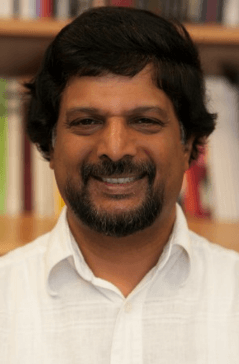
Athelstan Suresh Canagarajah is a Sri Lankan Tamil scholar in the fields of sociolinguistics, literacy, and English language teaching. He is currently the Edwin Erle Sparks Professor of Applied Linguistics, English, and Asian Studies at Pennsylvania State University. He is best known for introducing orientations to language and education from traditions and practices in the Global South to diversify dominant norms and policies in higher education and academia. He has played a leading role in empirically studying, theorizing, and defining the notion of translingual practice, which introduces a way of looking at communication as exceeding bounded languages and involving a negotiation of diverse semiotic repertoires, including words, multimodal resources, objects and artifacts, and material structures. He treats this ecological, ethical, and inclusive orientation to speaking and writing as part of his South Asian heritage and ancient practices in the Global South, which were later suppressed by European colonization.
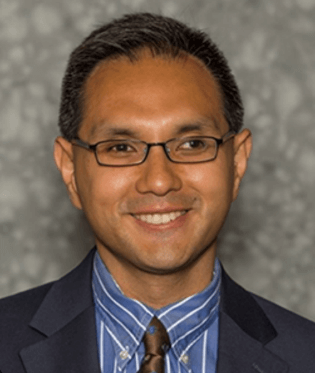
Peter’s primary area of research is the role of identity and ideology in second language acquisition (SLA), though he researches other issues in applied linguistics, including English as a lingua franca, critical classroom discourse analysis, and culturally relevant pedagogy for immigrant ESL learners. Much of his current work focuses on conducting ethical applied linguistic research, scalar approaches to language learning, language learning and emotions, linguistic landscapes in multilingual settings, and corpus-based understandings of EAP genre-related challenges encountered by international students studying in US universities.
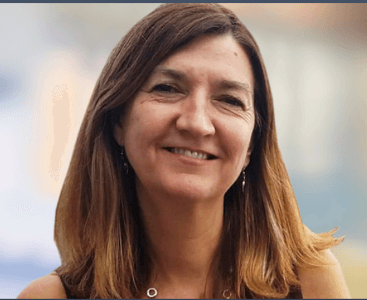
Lourdes Ortega is committed to investigating what it means to become bilingual or multilingual later in life and across elite and marginalized contexts for language learning. In her work she seeks to support harmonious bilingualism and the well-being of all multilinguals.
Expertise
Second Language Acquisition, Bilingualism and Multilingualism, Quantitative Research Methods, L2 Writing, Language Education, Meta-analysis
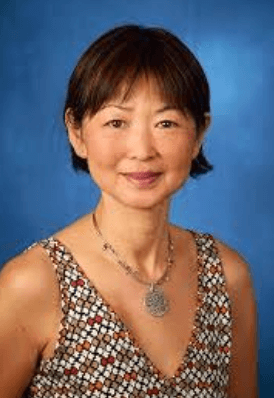
As an applied linguist and qualitative researcher, Mari’s research is centered on the educational experiences of immigrant students, particularly in multicultural and multilingual school settings. Her research has focused on how linguistically and culturally diverse English-learner (EL) students experience language socialization at the intersection of the enacted curriculum and the macro-sociopolitical milieu they are a part of. Adopting socio-critical perspectives on educational practices, she researches dialogic learning and teaching in various instructional settings, second-language and literacy development, and the professional development of those who teach ELs, both mainstream and ESL teachers. She is also interested in methodological issues concerning multi-layered, contextually sensitive discourse analysis that allows close attention to micro-, mezzo-, and macro-level interactional practices.
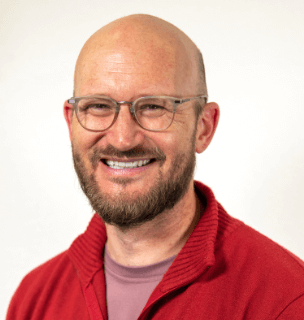
Jason’s research interests are in the areas of sociolinguistics, English as a Lingua Franca, World Englishes, Linguistic Landscapes, Language Program Administration, and Decolonial Scholarship. Jason’s academic work centers on the concerns of ELT professionals and institutions, considering the impact of ideological and theoretical changes within the ELT industry through a critical sociopolitical lens.
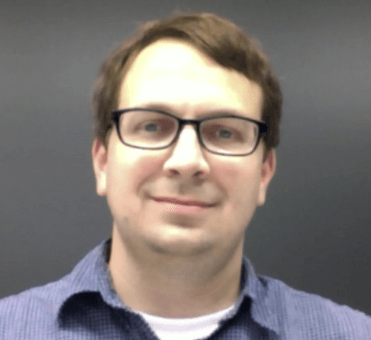
Stephen Looney is an applied linguist specializing in classroom interaction and the assessment of L2 interactional competence. His classroom research applies conversation analysis to document in microanalytic detail teaching and learning as multimodal and morally ordered social practice. Specifically, he is interested in how teachers and students manage issues related to epistemics, deontics, and emotion in situ. He is also currently conducting mixed-methods research on an in-house assessment of L2 interactional competence. This research’s primary aim is to provide a bottom-up description of task-specific interactional features which can inform rating criteria for tests of interactional competence.
Friday, January 24, 2025
Send a 600-word abstract of your writing project to Suresh Canagarajah at translingual-institute@psu.edu; include your full name, institutional status (graduate student, faculty etc.), affiliation, and mailing and email address.
Friday, January 31, 2025
Chosen participants to be informed of acceptance.
Friday, April 4, 2025
Deadline to submit full manuscript or work in progress to Suresh Canagarajah at translingual-institute@psu.edu; and register for the Institute.
Monday, May 12th–Friday, May 16th, 2025
Sessions will take place from 9:00 a.m. to 4:00 p.m. at 204 Wagner Building, University Park, PA 16802.
Registration fee is $100 and includes welcome breakfast, gala dinner, and refreshments during the workshop.
For more information, write to translingual-institute@psu.edu.
Lodging
On-Campus Housing:
To secure a space in on-campus housing, please complete the application form prior to the registration deadline (Friday, April 4, 2025) to ensure a space.
In order to streamline processes, only single units are available. The single room rate is $45.00/day. The minimum stay is 5 nights (Monday, May 12-Friday, May 16). If you arrive late or leave early, you are still responsible for the minimum 5-night stay of $225.00 (plus meal plan charges).
Linens, towels, etc. are not part of the housing agreement, but may be rented for an additional $15/week. Linen package includes: towel, washcloth, bed linen, and a blanket (no pillow).
Participants staying in on-campus housing must purchase a meal plan at the rate of $27.75/day. This policy is strictly enforced by the Penn State Housing Office and there are no exceptions. The meal plan is only valid for options on campus. You can eat elsewhere (e.g., off campus) but will not be reimbursed for unused funds.
The following table lists dates and costs:

After completing the form, you will be directed to a payment page. For housing, you must complete the housing registration and fully pay no later than Friday, April 4, 5:00pm EST. Late submissions or any changes after April 23 will incur a $250 late/change charge. Contact Jason Litzenberg (jjl53@psu.edu) if you have questions about payment, housing, or would like to establish an installment plan. (You may skip the payment at this point of the process, but you must pay in order to secure accommodation. To pay at a later date, visit: https://iecp.la.psu.edu/payment/). Please note that registration for the Institute and registration for housing are separate processes; you must complete both if you want on-campus housing!
Check-in should occur during regular working hours (8:00am-5:00pm). Accommodations can be made for reasonable early/late arrival times, but these should not be extremely outside of the regular hours (e.g., 7:00am or 7:00pm would be acceptable, but a 2:00am arrival would need to wait until the following day to check in).
General information about on-campus accommodations may be found here: https://liveon.psu.edu/university-park/conference-and-summer-camp-participants
Parking is also not included in the housing costs or as part of the Institute. Please visit Penn State’s Parking Services for inquiries about parking and to obtain passes: https://transportation.psu.edu/parking
Local Hotels (all walkable to event):
The Graduate: 125 S Atherton St, State College, PA 16801; (814) 231-2100
The Nittany Lion Inn: 200 W Park Ave, State College, PA 16803; (814) 865-8500
The Scholar: 205 E Beaver Ave, State College, PA 16801; (814) 778-0300
Hyatt Place: 219 West Beaver Avenue; (814) 862-9808
Travel
Don’t forget the State College Regional Airport when planning your travels! You can generally travel from the airport to downtown State College for about $25 with Uber or Lyft. There is also limited bus service available via CATA.
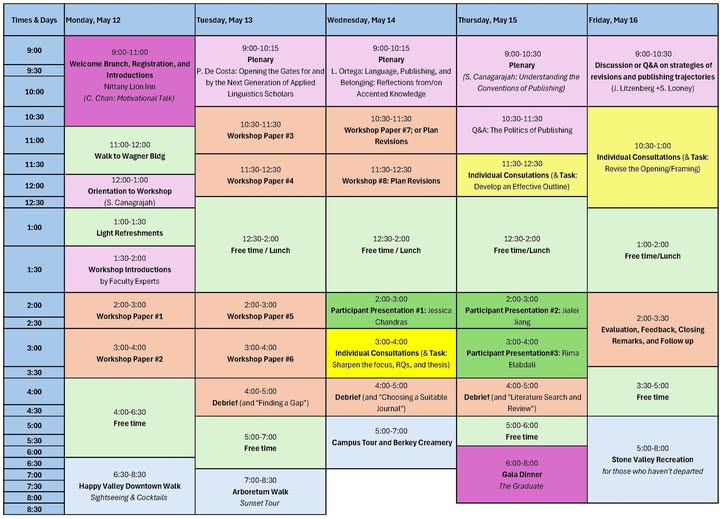
Note: Agenda is tentative! The dates as well as the start and end times of activities on the first and last day are established, but some details of the agenda may be updated. This page will continue to provide the most updated agenda.
Times and Day | Monday, May 12 |
|---|---|
9:00–11:00 a.m. | Welcome Brunch, Registration, and Introductions
Nittany Lion Inn (C. Chan: Motivational Talk) |
11:00–Noon | Walk to Wagner Building |
Noon–1:00 p.m. | Orientation to Workshop
(S. Canagrajah) |
1:00–1:30 p.m. | Light Refreshments |
1:30–2:00 p.m. | Workshop Introductions
by Faculty Experts |
2:00–3:00 p.m. | Workshop Paper #1 |
3:00–4:00 p.m. | Workshop Paper #2 |
4:00–6:30 p.m. | Free time |
6:30–8:30 p.m. | Happy Valley Downtown Walk
Sightseeing and Cocktails |
Times and Day | Tuesday, May 13 |
|---|---|
9:00–10:15 a.m. | Plenary
P. De Costa: Opening the Gates for and by the Next Generation of Applied Linguistics Scholars |
10:30–11:30 a.m. | Workshop Paper #3 |
11:30–12:30 p.m. | Workshop Paper #4 |
12:30–2:00 p.m. | Free time / Lunch |
2:00–3:00 p.m. | Workshop Paper #5 |
3:00–4:00 p.m. | Workshop Paper #6 |
4:00–5:00 p.m. | Debrief (and “Finding a Gap”) |
5:00–7:00 p.m. | Free time |
7:00–8:30 p.m. | Arboretum Walk
Sunset Tour |
Times and Day | Wednesday, May 14 |
|---|---|
9:00–10:15 a.m. | Plenary
L. Ortega: Language, Publishing and Belonging: Reflections from/on Accented Knowledge |
10:30–11:30 a.m. | Workshop Paper #7; or Plan Revisions |
11:30–12:30 p.m. | Workshop Paper #8; or Plan Revisions |
12:30–2:00 p.m. | Free time / Lunch |
2:00–3:00 p.m. | Participant Presentation #1: Jessica Chandras |
3:00–4:00 p.m. | Individual Consultations (and Task: Sharpen the focus, RQs, and thesis) |
4:00–5:00 p.m. | Debrief (and “Choosing a Suitable Journal”) |
5:00–7:00 p.m. | Campus Tour and Berkey Creamery |
Times and Day | Thursday, May 15 |
|---|---|
9:00–10:15 a.m. | Plenary
(S. Canagarajah: Understanding the Conventions of Publishing) |
10:30–11:30 a.m. | Q&A: The Politics of Publishing |
11:30–12:30 p.m. | Individual Consultations (and Task: Develop an Effective Outline) |
12:30–2:00 p.m. | Free time / Lunch |
2:00–3:00 p.m. | Participant Presentation #2: Jialei Jiang |
3:00–4:00 p.m. | Participant Presentation #3: Rima Elabdali
|
4:00–5:00 p.m. | Debrief (and “Literature Search and Review”) |
5:00–6:00 p.m. | Free time |
6:00–8:00 p.m. | Gala Dinner
The Graduate |
Times and Day | Friday, May 16 |
|---|---|
9:00–10:15 a.m. | Discussion or Q&A on strategies of revisions and publishing trajectories
(J. Litzenberg + S. Looney) |
10:30–1:00 p.m. | Individual Consultations (and Task: Revise the Opening/Framing) |
1:00–2:00 p.m. | Free time / Lunch |
2:00–3:30 p.m. | Evaluation, Feedback, Closing Remarks, and Follow up |
3:30–5:00 p.m. | Free time |
5:00–8:00 p.m. | Stone Valley Recration
for those who haven’t departed |
This institute is funded by the Evan Pugh University Professorship
Co-sponsored by:
The Migration Studies Project, Penn State
Center for Language Acquisition, Penn State
The Intensive English Communication Program, Penn State
The Educational University of Hong Kong
International Center for Writing and Translation, UC Irvine